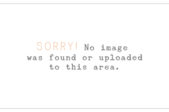Verbal Agreements in New York: Understanding the Risks and Protections
Verbal agreements, also known as oral contracts or handshake deals, are common in many business transactions, including in New York. However, relying solely on verbal agreements can put you in a precarious situation, particularly if things go wrong. In this article, we explore verbal agreements in New York, their risks and protections, and what you need to know to protect yourself.
What is a Verbal Agreement?
A verbal agreement is a legally binding contract that is made through spoken words and without a written document. It is formed when two or more parties agree to terms and conditions that are enforceable by law. Verbal agreements are generally valid under New York law, but they can be difficult to prove in court.
Risks of Verbal Agreements
The main risk of verbal agreements is that they are difficult to enforce if disputes arise. Without a written contract, it can be challenging to prove what the terms of the agreement were, especially if the parties have different recollections of the agreement. Additionally, there is no physical evidence of the agreement or any documentation of changes that may have been made.
Another risk of verbal agreements is that they are subject to interpretation. The parties may have different understandings of the agreement, leading to disagreements later on. This can be particularly challenging when the terms of the agreement are complex or open to multiple interpretations.
Protections for Verbal Agreements
Although verbal agreements are riskier than written agreements, there are still some protections available for parties who enter into them. For instance, New York law recognizes the existence of verbal agreements and allows them to be enforced in court. The judge will determine the terms of the agreement based on the evidence presented and the intent of the parties.
Additionally, there are other steps you can take to protect yourself when entering into a verbal agreement. For example, it’s important to document the details of the agreement as much as possible, such as by taking notes during negotiations or sending emails summarizing the agreement. This documentation can help later on if there is a dispute over the terms of the agreement.
It’s also a good idea to have a witness present when the agreement is made. The witness can provide testimony if needed to help establish the terms of the agreement and confirm that the parties agreed to them.
Conclusion
Verbal agreements can be an effective way to make business deals in New York, but they carry risks. Without a written document, it can be difficult to prove the terms of the agreement or enforce it in court. To protect yourself, it’s important to document as much as possible and consider having a witness present when the agreement is made. If you’re unsure about entering into a verbal agreement, it’s always best to consult with a legal professional first.






